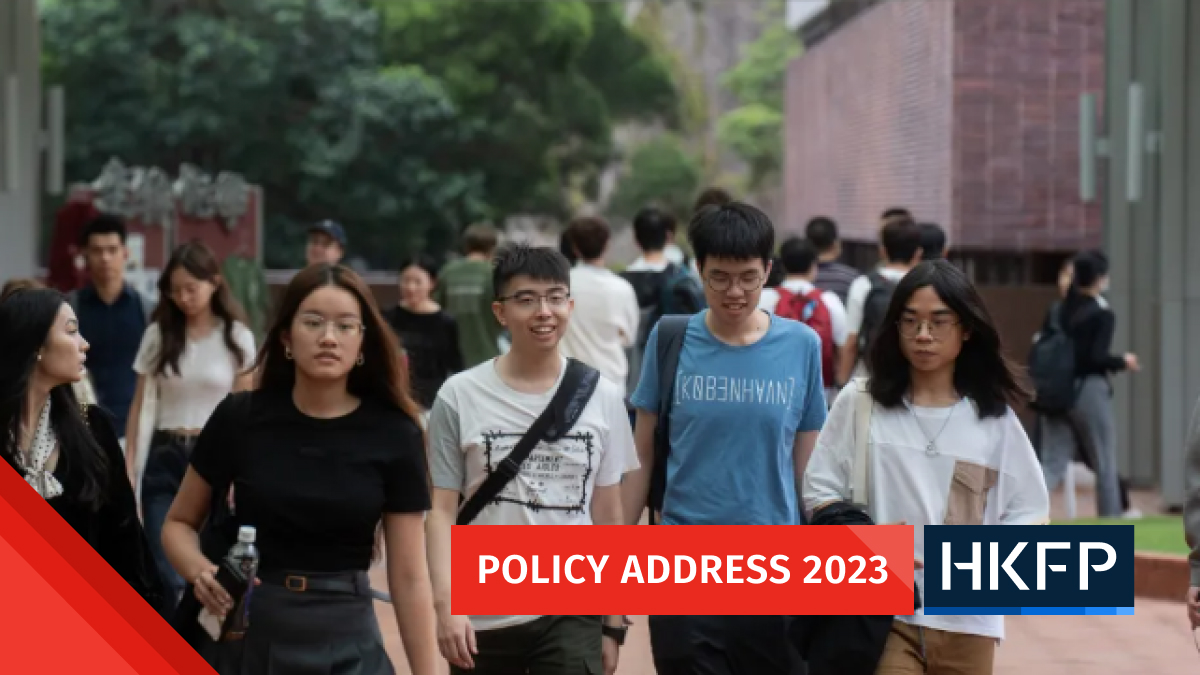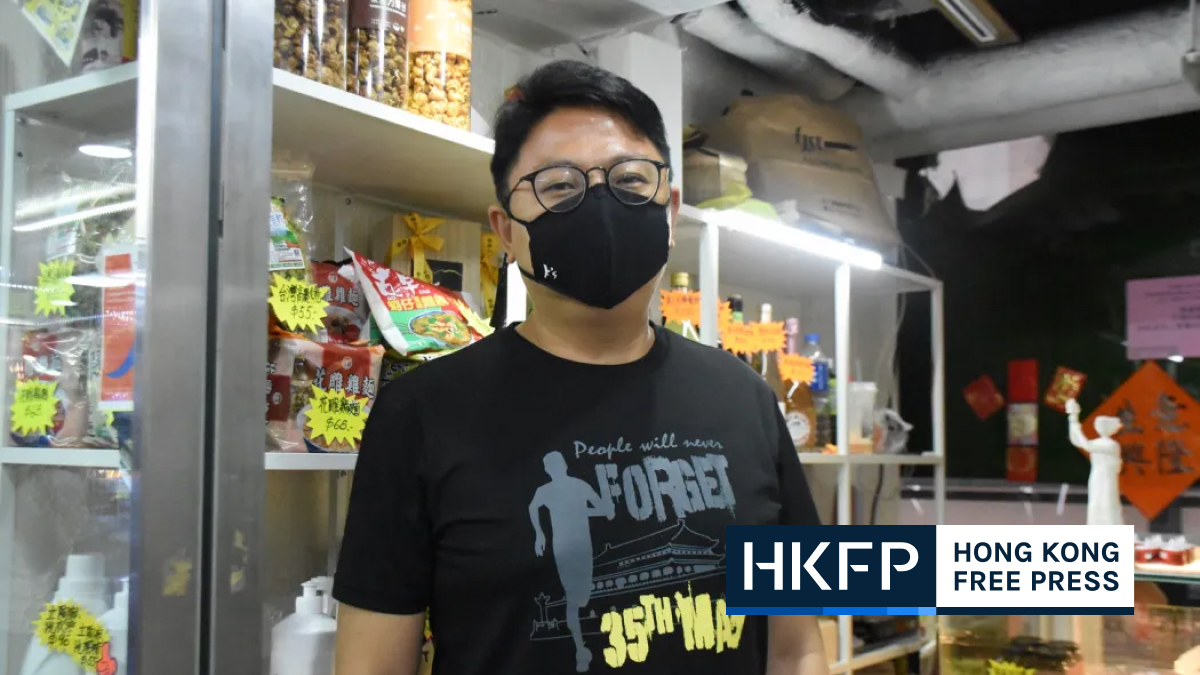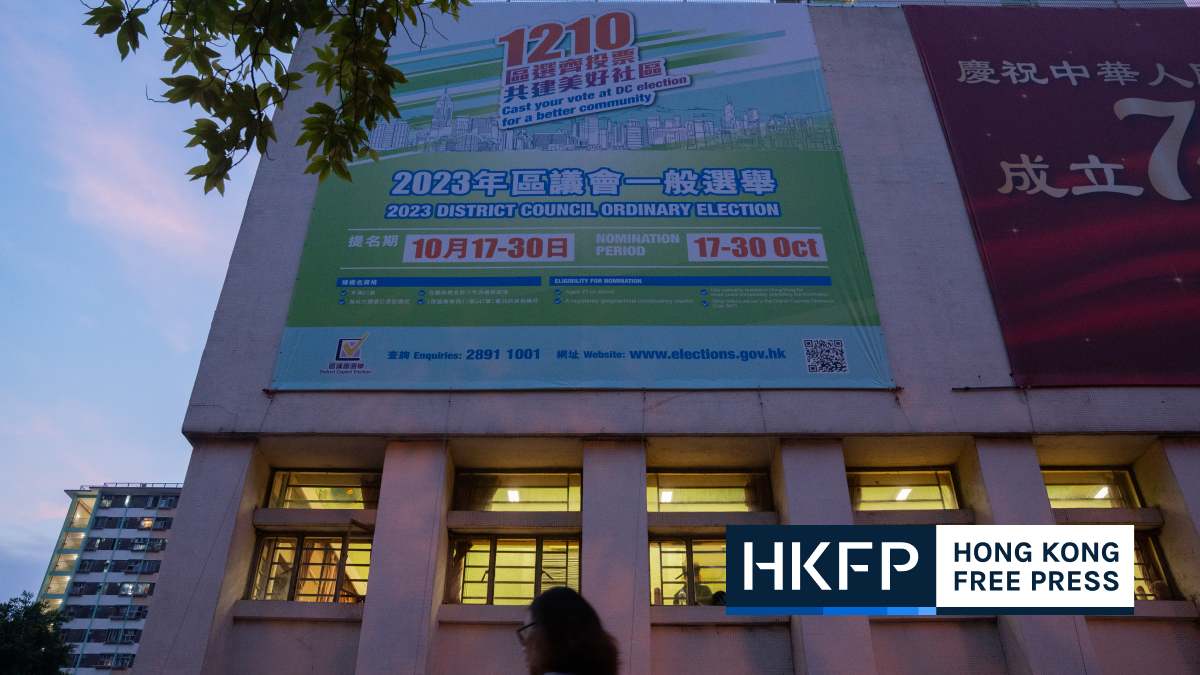In Ukraine, the sound of shelling has become background noise. People hear relentless explosions in the distance, but no one flinches.
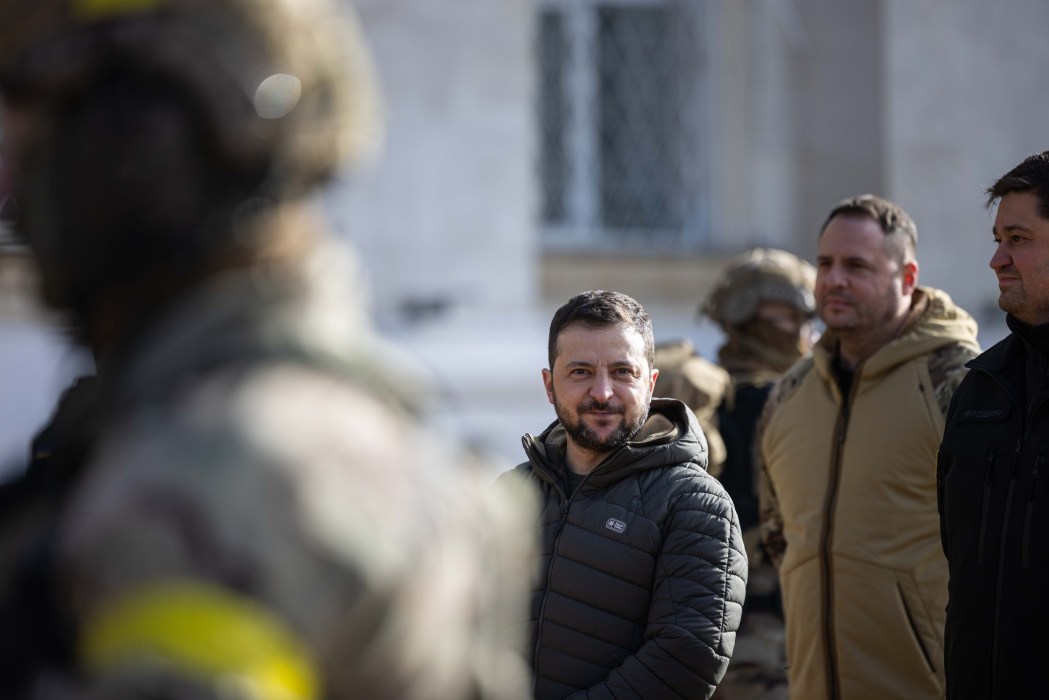
Next Friday marks the first anniversary of the Russian invasion which triggered the full-scale war. Some Hong Kong journalists, who had covered the city’s protests in 2019, have been reporting the conflict ever since.
All of them became so emotionally involved that they changed study plans and flights to stay longer in Ukraine, willing to undergo the tough times along with its people.
‘They want victory, not only peace’
Kaoru Ng was among the first to go. When a massive Russian military presence was spotted along the Ukraine border and rumours of invasion intensified in February last year, he decided to take off for Kyiv and see for himself what was happening.
The bleak prophesies came true, and Kaoru became a war correspondent. “My plan was to stay in Kyiv for a month, but I ended up staying in Ukraine for nine months.”
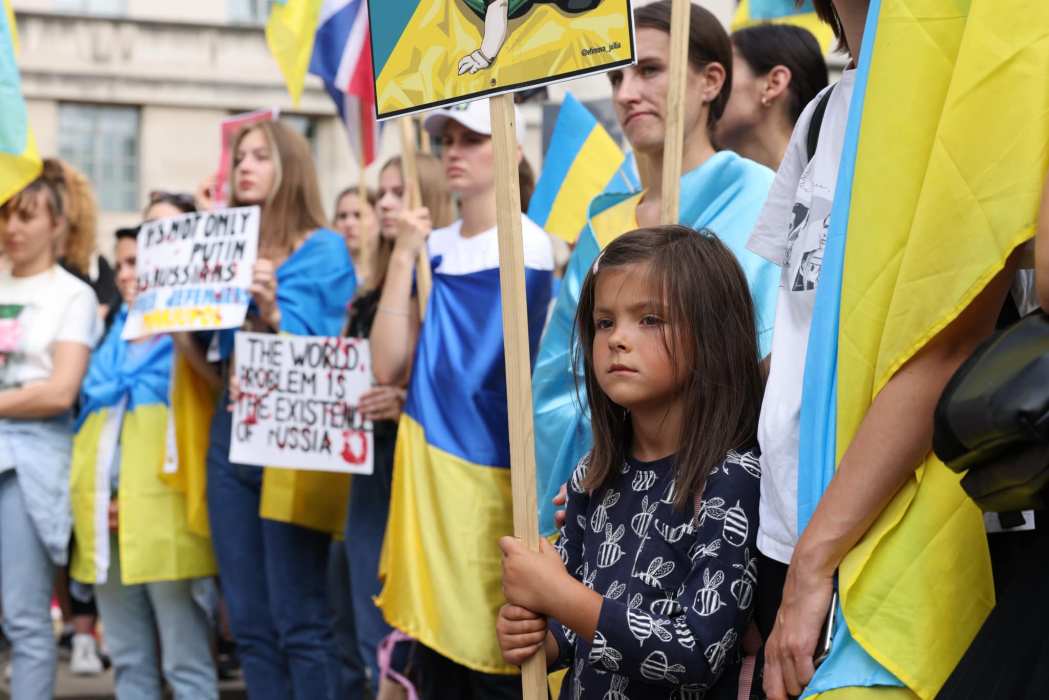
Kaoru started his journalism career as a photojournalist in 2019, visiting protest sites to capture Hongkongers’ anger. The following year, Beijing imposed the national security law. The city’s largest pro-democracy paper Apple Daily, which once employed Kaoru as a freelance journalist, shut down in 2021 after its editors were arrested.
In light of the shrinking space for freedom of expression, Kaoru, like tens of thousands of other Hongkongers, chose to leave. He has not been back to the city for over a year.
But the days in Ukraine reminded him of his home city. “When Ukrainians are helping out each other so selflessly, it reminds me of Hongkongers in 2019. I mean, isn’t this Hong Kong’s core value? When you see others suffering, you want to help.”

The suffering of Ukrainians was all too visible, with the UN verifying a total of 7,155 civilian deaths as of February 5. Kaoru described the scenes he saw as “heartbreaking” – homes reduced to rubble, eyes out of their sockets, bodies unburied. But he emphasised that “Ukrainians want to win, not only to make peace. They don’t like the word ‘peace’. Peace implies a ceasefire, but that doesn’t mean that they will get their territories back. They don’t want to compromise on this.”
Speaking about the Ukrainians he talked to, including some living in the east who had supported Russia during its 2014 incursions, Kaoru said: “They understand so well the consequences without political autonomy. During the Soviet Union period, Russia had been oppressing Ukrainians. It’s just that they used famine as a weapon. That’s why they want a true victory.”
Kaoru said the conflict was often framed in the context of international relations, such as the European Union’s support and the issue of grain exports. “I really want to focus on covering the stories of ordinary Ukrainians, how they live their lives and how they think about the war.”
A mirror for Hong Kong
One scene which stuck in his mind was a six-year-old girl tending to her family’s cows near Bakhmut, while missiles flew right over her head.
“These 20 cows are all we have. Where can we go?” the girl said. For Kaoru, a Hongkonger who had left the city, the girl’s answer left a bitter taste.
“Ukrainian history made me reflect on Hong Kong’s democracy movement, which has temporarily stopped, or failed, I don’t know. But I think it’s also important to think about what to do after you gain power. Ukrainians did not discuss it.”

Kaoru described Ukraine, after 2014, as a country steadily moving towards democracy. “But you have such a country [Russia] next to you. What choice do you have?”
He compared the Russia-Ukraine stalemate to the China-Taiwan relationship, “It’s a war between totalitarianism and freedom.”
Asked why he had never come back to Hong Kong, Kaoru paused before answering: “You know some people who had protested in Paris and London [to support Hong Kong’s pro-democracy movement] were arrested when they came back to Hong Kong. Some went to the mainland and were detained by security officials. I don’t know where the red lines are. I won’t go back to Hong Kong if there is nothing urgent.”
‘I adopted a cat’
Every morning, Alex Chan Tsz-yuk wakes to the sound of shelling in the east of Bakhmut – and the mewing of a stray cat.
The 27-year-old freelance photojournalist, with tanned skin and countless little scars on his hands, started his career covering the 2019 mass protests. When the Ukraine war broke out, he volunteered to go to the frontline.
At first he stayed at a hostel in Bakhmut, a city shattered by Russian shellfire with water and electricity supplies unstable. One blackout lasted two days and Alex was told to leave. “The hostel staff felt sorry, they didn’t want to charge us without providing proper services.”

Alex was standing marooned on the street with all his baggage when a Ukrainian and a French journalist bumped into him and suggested he walk one hour to the east with them, where they knew some houses had been abandoned. That’s where Alex met his cat.
One month later, he had to head to the city of Dnipro because of work. The cat went with him and he decided to adopt her. His Ukrainian friends named the animal Javelina in tribute to the anti-tank missile provided by the US.
‘You’re on your own’
When Russia was pouring in fresh waves of troops to try to break Ukraine’s grip on Luhansk, Alex teamed up with Kaoru to go there. A bridge connecting Ukrainian troops and the frontlines was under Russian surveillance but they risked crossing it a few times to get a closer look at the battlefield.
One day, their party was hit by suspected howitzer fire.

Their fixer, Mykola, was wounded in his right arm and Alex and Kaoru rushed him to hospital. A doctor said he would take at least a year to recover from nerve damage, meaning the fixer could not support his family including his three-year-old daughter.
Alex posted video of the attack recorded by a camera on his forehead to social media and sought donations for the family. Some expressed sympathy, while others – mostly experienced foreign journalists – bombarded Alex’s mailbox with criticism of his alleged recklessness and tardy response to the family’s needs.
“But I don’t have a big company’s financial support,” Alex said. “Mykola still has a three-year-old daughter at home. Kaoru and I already gave all we could, but it’s still not enough. So what could I do?”
“You have to understand that I’m a freelance photographer. That means you’re on your own. If I don’t go to the frontlines, how can I get paid?”
“It’s not only about the money, but to get good pictures, sometimes it is crucial to get close enough.”

Hong Kong Baptist University, where Alex is studying journalism, does not allow students to take a gap year except for medical reasons. Alex has been away for nearly one year covering the war and is currently back in Hong Kong to catch up on his studies. When he graduates this summer, he says he will return to Ukraine.
‘What are you doing here?’
Like Kaoru and Alex, Laurel Chor has spent months in Ukraine. But her experience is slightly different, because she’s always “the only woman in the room.” Sometimes, generals come and shake everyone’s hand except hers.
Since the start of the war, Ukraine has banned men of military age from leaving the country, while many of the women and children have fled to neighbouring countries. As a result, the country has a much higher concentration of men than usual.

Sometimes, people question what Laurel is doing there. The questions are well-intentioned, “but sometimes they were overprotective. I appreciate people looking out for me in war. But on the other hand, you know, they might underestimate my ability to work under stress.”
She said that war and war journalism are “in general… a male-dominated world.” But Laurel believes that makes it all the more important to tell the stories of women caught up in the conflict, who are often overlooked. She met a single mother from Dnipro, who helps evacuate citizens from the frontlines. Laurel decided to include her in a feature-length documentary, – alongside a Ukrainian journalist and a local firefighter – to show the war from the inside.
An experienced journalist who has worked for The New York Times, The Washington Post and a number of other prestigious outlets, Laurel is collaborating with filmmaker Arman Dzidzovic, a Bosnian refugee who grew up in New York. They are using their earnings from freelancing to fund the documentary project.

In fact, Laurel wears many hats – she also writes, podcasts and takes photographs. After graduating from Georgetown University with a Bachelor of Science in International Health and Development, returned to Hong Kong and embarked on a career in journalism. Her coverage of the 2019 protests in Hong Kong was internationally recognised, earning her – among other awards – an Emmy nomination.
Laurel fell in love with reporting, especially in Ukraine. At first, she planned to stay for around 10 days, “but we ended up staying six weeks.” She grinned, “I think ever since I’ve fallen in love with Ukraine and I’ve become really committed to the stories here.”
“My agenda – in quotation marks – is, you know, reporting on the oppressed, speaking truth to power and holding power accountable,” Laurel added.
She said she saw video as a medium that could reach a wider audience with greater impact. “The [Hong Kong] protesters were inspired by Winter on Fire, the documentary about the Maidan Revolution in Ukraine,” she says.
Laurel describes her Hong Kong story as very typical: “My grandparents fled China during the civil war to Hong Kong, which at the time was a British colony, my parents and my sister were born in a British colony. Then we emigrated to Canada, like many Hongkongers. And then we came back to Hong Kong.”

“We all know what it’s like to have our lives affected by things beyond our control in a way that affects where we live, and where we’re born, and everything about our lives. I think Hong Kong people know very well how regular people are subjected to historical and political forces beyond our control.”
Behind the headlines
Anson Sham, 26, is a freelance filmmaker who graduated from the Hong Kong Baptist University’s Film Concentration course. When the war broke out, he was glued to the live news for hours. “I don’t know why. I felt so attached. I want to do something.”
He soon bought a one-way ticket and arrived at the Poland-Ukraine border with a backpack in March last year. Without a press card, he identified himself as “a traveller with camera” and started filming the lives of Ukrainian refugees, especially the children. “I know that for many people, weapons are interesting. But I’m interested in people. The news footage would tell you about farewells at the train station. But they won’t show many little moments that happen in the corner. I’d like to do stories that are not in the spotlight.”

Aiming to present the war from a unique angle, he talked to as many Ukrainian refugees as possible. At first, the interviews reminded him of the exodus from Hong Kong. “We have shared emotions. Both are forced displacements, a physically and mentally stranded situation. You can’t reach the place you want to go, and you don’t know what the future looks like. It’s a dire situation.”
But later, he found the two incidents incomparable, “the context and pattern are totally different. I prefer not to link them up.”
In Anson’s ongoing documentary project about millions of Ukrainian refugees searching for new homes, he chose to feature children as the protagonists. “Adults were too good at articulating their feelings. They have a lot to talk about. They always comment on the situation, politics and history. But I’m not here to narrate something. I just want to express feelings.”

Once, he asked a child who was clutching a toy a simple question: “What are you doing?”
“I don’t know,” the child said. “I was waiting for a bus near my home. Then I took the bus to come here. And I have to wait for the bus again, so I’m waiting here. I play with the toy because I have nothing to do.”
The answer, said Anson, was typical of everyone forced from their homes. “Adults are like children. We are all disoriented, even homeless.”
“But what I believe is, no matter what will happen in the future, these memories are engraved on your heart.”
Support HKFP | Policies & Ethics | Error/typo? | Contact Us | Newsletter | Transparency & Annual Report | Apps
Help safeguard press freedom & keep HKFP free for all readers by supporting our team

LATEST FROM HKFP
HKFP has an impartial stance, transparent funding, and balanced coverage guided by an Ethics Code and Corrections Policy.
Support press freedom & help us surpass 1,000 monthly Patrons: 100% independent, governed by an ethics code & not-for-profit.


